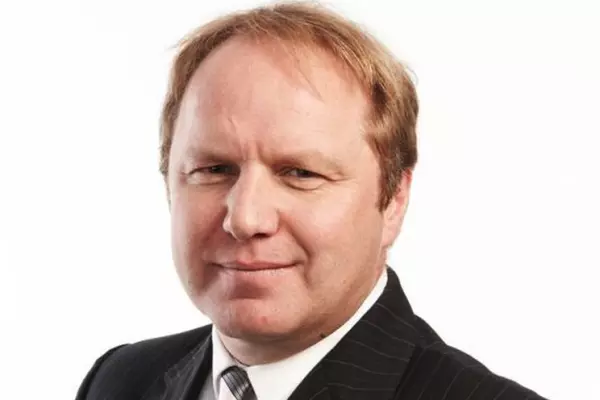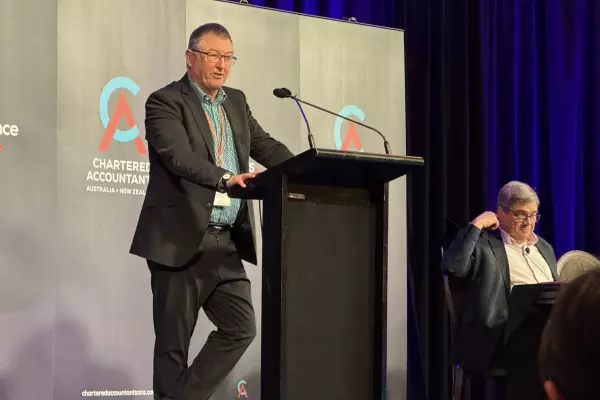When it comes to attracting quality talent from the younger generation of workers, it’s no longer possible for businesses to sneak past the “bullshit radar” undetected, says Simplicity founder Sam Stubbs.
Not even slick corporate PR campaigns will be enough to beguile younger, more socially conscious workers, which he says are no longer content with merely having a job and making a living, but want their work to be built on values.
“It's going to be extremely difficult for companies to hire and retain talent if they are not respecting things like gender and ethnicity. The work must reflect these things.”
“And an awful lot of that starts off with transparency.”
It’s a concept that has gradually permeated vast swathes of global industries in recent years. From fashion to agriculture to electronics manufacturing, entire sectors have squirmed under the scorching scrutiny of ethical consumers and rushed to make their practices more transparent. After all, if you do that then you've got nothing to hide.
But now, according to Stubbs, that demand for transparency is spreading from consumers to workers, who are scrutinising what was once the private domain of an employer: pay equity.
Over the last two years, a burgeoning movement of large companies has committed to investigating the pay discrepancies between their workers and regularly reporting the figures publicly. The idea is that, with the books open for prospective employees and shareholders, there is a real incentive to introduce policies to improve the gaps and fairness in the workplace.
And while this is still voluntary, Stubbs says the pressure on New Zealand businesses to begin reporting their gender and ethnic pay gaps will only grow. As difficult and as risky as that might seem, he says employers have more to fear from the shadows than they do the light.
“Pay gap reporting is sunlight. Very rarely in my life have I seen more sunlight be a bad thing for a company.”
The carrot
There are two incentives for businesses to find their pay gaps and start reporting them publicly, he says.
First, any company that reports discrepancies – no matter how big – will be offsetting the discomfort with something that has an enormous market value in the current climate – honesty.
“If you report a big pay gap, what you are saying is ‘we are honest enough with ourselves to admit that there might be a problem here and that we need to justify or improve this’. The new generation of workers are always going to appreciate the honesty.”
“Upping the degree of truth and transparency in the workplace is inevitably going to attract the highest quality employee.”
The stick
That’s the carrot, he says.
The stick is that if businesses don’t start doing this soon and voluntarily, their brands and reputation will inevitably suffer.
“If you don’t do this, people are going to find out. You can't hire a PR firm now to manipulate your corporate image to the extent that you could in the past. Social media finds you out. The internet finds out.
“If you do it, you'll be rewarded. And if you don't do it, you’ll certainly be punished.”
The shift in the balance of power stands in stark contrast to the days when most employees accepted their lot without making a fuss. And while Stubbs agrees that it once wasn’t customary for workers to challenge the authority of bosses, businesses are now going to have to accept the fact the will of the labour force needs to be heeded.
Shareholders
It’s the same with shareholders, he says. Investors are becoming increasingly aware of the value of transparency in creating meaningful social impact, and it will inevitably dictate their choices.
Such has been the case overseas. In the face of climate change, a groundswell of activist investment has challenged a number of large fossil fuel companies on their dubious environmental track records and forced them to change direction and focus.
While the emphasis on pay equity hasn’t reached the same level of intensity, Stubbs says more shareholders are paying attention to the issue.
“I'm not pretending that we're all going to do this, but a certain number of shareholders are getting serious about this, including Simplicity.”
With NZ seeing an excess in capital and a severe talent shortage, people are becoming the most important asset in a successful company as a long-term investment, he says.
“The real differentiator in long term company performance is going to be the quality of talent. That’s what we’re interested in as long term investors.
“That’s why things like pay gap reporting matter to us.”














